Author/Ruyi Liu, Graduate Institute of Building & Planning, NTU
Translator/Hao-Wei, Wei
The seminar From seeing, Hearing to Action: The Civic Counterattack on Air Pollution is the associated seminar on air pollution and environment of the campus tour of the album Village Besieged (圍庄) from Sheng-Xiang & Band (生祥樂隊)[1] on December 18th, 2017. Starting from watching documentary to possible actions people can participate in environmental issues, it is hoped that more people can understand and pay attention to the importance of air pollution issue.
Begin from the Documentaries
The event started with the documentary The Other side of the Sea (海的那邊) filmed by director Lin Jia-An (林家安), which depicts the life of people in Taixi Village, located at the north coast of Zhuoshui River in Dacheng Township, Changhua County. The villagers in Taixi Village are faced with the hazard of air pollution produced by the Sixth naphtha Cracker and suffer from plight and diseases including cancers. While the petrochemical industry brings economic growth and their products are indispensable, the environmental hazards should not be borne by local residents. We must recognize them as those sacrificed and search all the possible solutions together with them. While most people think the air pollution issues are already widely understood and recognized by the general public, what is depicted in the short documentary Taipei is foggy? (台北。起霧了?) by director Lin Tay-jou (林泰州) is on the contrary. In this documentary, two girls were on Xiangshan Mountain and mistook the haze as a romantic fog, which marks an ironic contrast.
Director Lin Jia-An comes from Taixi Township, Yunlin County, and therefore he is not unfamiliar with the Sixth naphtha Cracker located in Mailiao, Yunlin. The impacts of the Sixth naphtha Cracker cannot be measured by the actual distance, as the impacts of air pollution are borderless. The hazards it causes on agriculture, aquaculture and public health are already apparent. The director believes that the pollution is a problem of social class. In addition to the conflict between southern and northern Taiwan, it causes difficulties for local residents to change the living condition. In the past, through fish farming or crop growing in the reclaimed land, residents in Yunlin can move up social class. However, the pollution has made it hazardous for people growing up here to go back to their homeland. The director asked emotionally, that while the transitional justice now receives much attention, "But how do we apply transitional justice to the environment?" There are political contexts that big industrial areas and factories are established in remote areas. Most people believe the industrial areas can bring economic development to the local region while it actually does not, but who should endure the pollution?
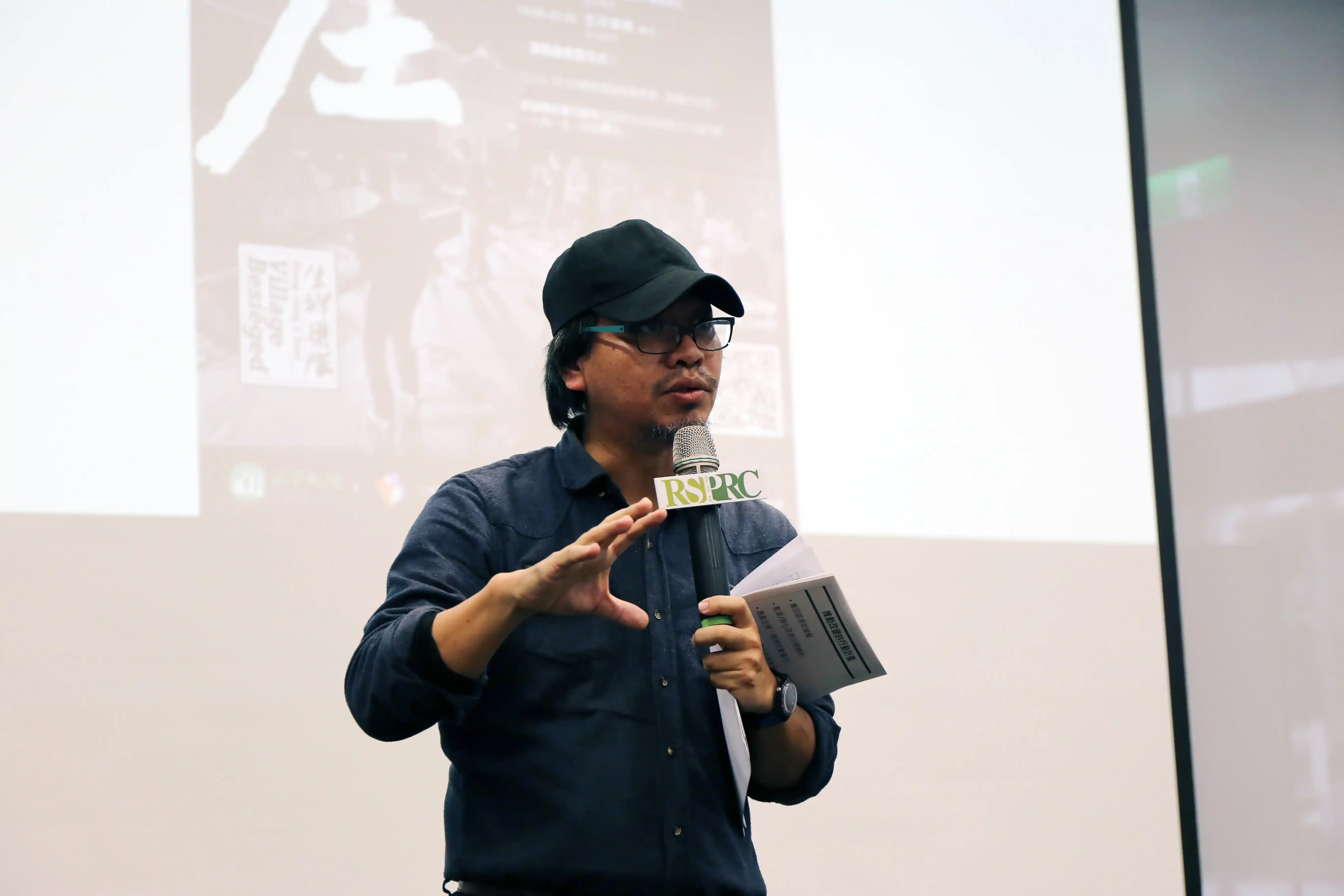
Director Lin Jia-An
In the discussion session afterwards, an audience mentioned that the documentary is very touching, and asked if it is possible to have those influential high officials seeing this documentary or have it played on more media. The director agreed that this is important and hoped that images could exert more influences, and therefore this documentary has already been uploaded to the Internet and he welcomed people to share it. He would also extend this documentary into a complete one, titled The Offshore (離岸), and the editing would be finished by the end of 2017. He hoped to by all means exert the influences of the images.
The Visible Pollution - In This Way We utilized the Open Data
The question arises after seeing the sufferings of the residents caused by the pollution produced by petrochemical industry. What are the actions we as general public could adopt on this issue which is seemingly difficult to change immediately? The Green Citizens' Action Alliance (GCAA), which has been concerning on energy and environment issues, believes that the transparency and openness of the open data is the first step that general public can participate in the supervision. Tseng Hong-Wen (曾虹文) researcher at GCAA, said,most people are anxious with industrial and air pollution and think that even the government cannot do much even with the authorities. In the past, due to lack of monitor data of better quality, the exact source of pollution has been difficult to be confirmed. For example, most people living next to a factory would not even know what kind of the factory it is or what it is emitting. However, the environmental right-to-know is significant, which is also what GCAA has been promoting. In the past, the condition of emission of the factories is difficult to approach although the government is monitoring on it. Therefore, the GCAA has spent a lot time to get the emission data exposed. And Tseng believes that to expose the data is not only to have the open data, but also to make the data understandable and meaningful for most people.
The "Thaubing Footprint" website is established under this context. The website integrates information on drains and chimneys, their location, data on pollution excess and penalties. To inquire and supervise the factories close to your living place, you just need to enter the name of the companies or the place. Tseng also mentioned about the origin of the Thaubing Footprint Project, which was that someone found the Sixth naphtha Cracker(六輕) emitting black smoke and reported to the Environmental Protection Bureau, but only received the response that "it's just because of the poor light." Later it is found that there were some problems with those 25000 data exceeding the standard, for example some were just marked as "in maintenance". These incidents highlighted the question on the effectiveness of the data and inspires the project.
To sum up, the "Thaubing Footprint" hopes to provide people with different imagination on governance. Change is able to happen through the participation of everyone. The website can work as a tool to present the current condition of pollution and put pressure on the enterprises. Supervision from the general public can have influences and form a changing power.
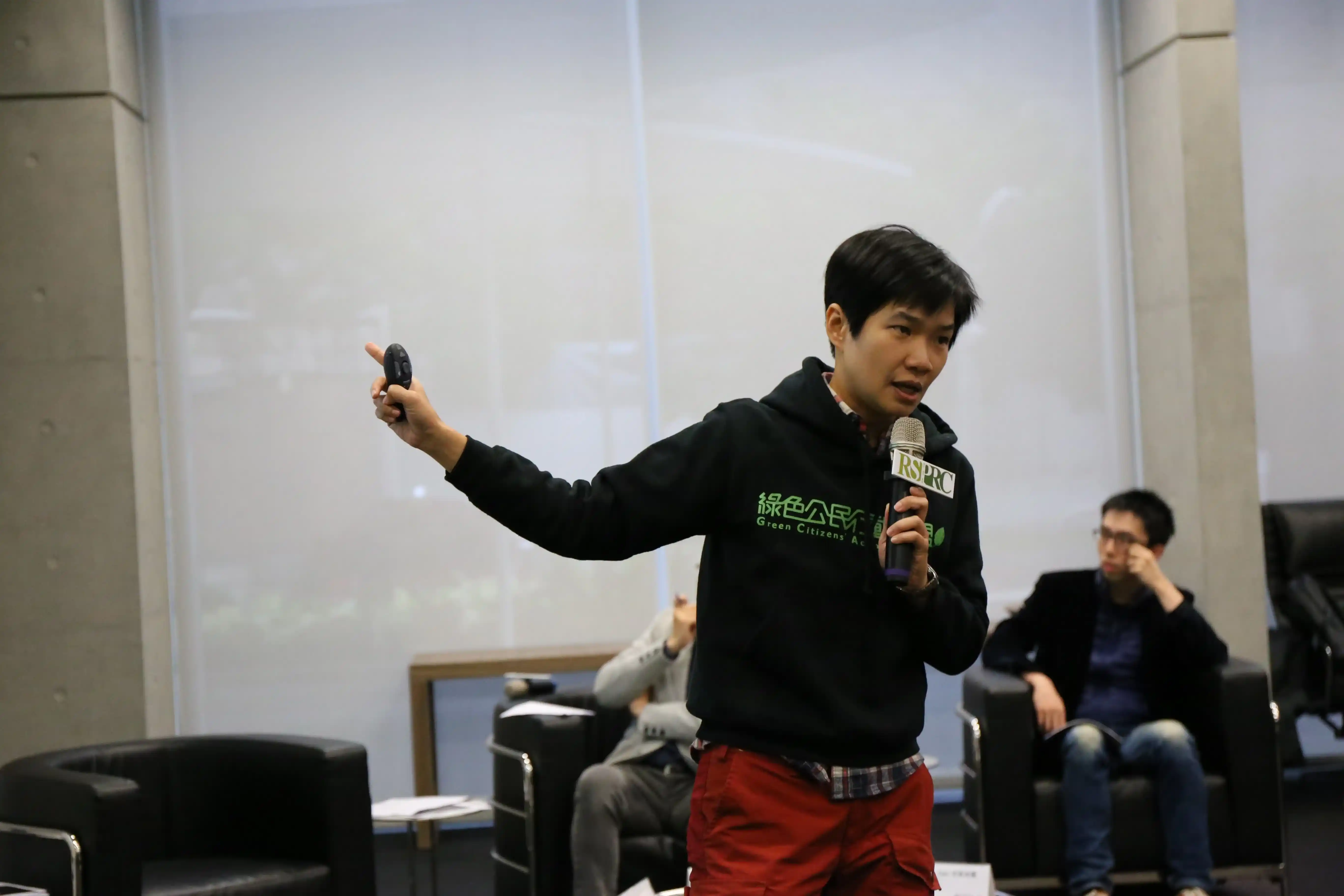
Tseng Hong-Wen, researcher at GCAA
Citizen Science - The 0air MAP
In addition to the monitoring tools on stationary pollution sources, do most people know about the air quality and mobile pollution sources in their daily life? Wang Jih-Hsin (王日新), the founder of 0air MAP, said that by installing environmental monitors in urban streets, the residents can be updated with the latest air quality. The residents can then decide their means of transportation. According to several research papers, Wang said, people who live near highway or less than 50 meters from main roads tend to die 2.5 years earlier. This value is similar to having serious disease. Taiwan is a highly urbanized country where most of residents live in cities and between 70% to 80% of them live less than 50 meters from main roads. These people have no choice but to live with the air pollution. It's certain that people travel on the road. Then do we need to monitor air pollution on the streets? The fact that the government does not provide corresponding measurement and policy encouraged Wang to have further understanding on air quality on the streets. He found out that air pollution in Taiwan was more severe than other countries. The 0air MAP team installed monitors on roofs, streets and vehicles including taxis, which allowed them to collect data and to understand air quality. He took Taipei's "Three vertical and horizontal bikeway network plan" as an example. In terms of the observed air quality data on these streets, he found that the worst air quality is observed on Fuxing North Road. The air quality on surface street of Civic Boulevard is not good either, because of intensive buildings along the street. Wang believed that observation data on air quality can affect the location of future building and have an influence on urban planning as far as possible. With this map of air quality on hand, Wang said, the associated government policy can be more convincing.
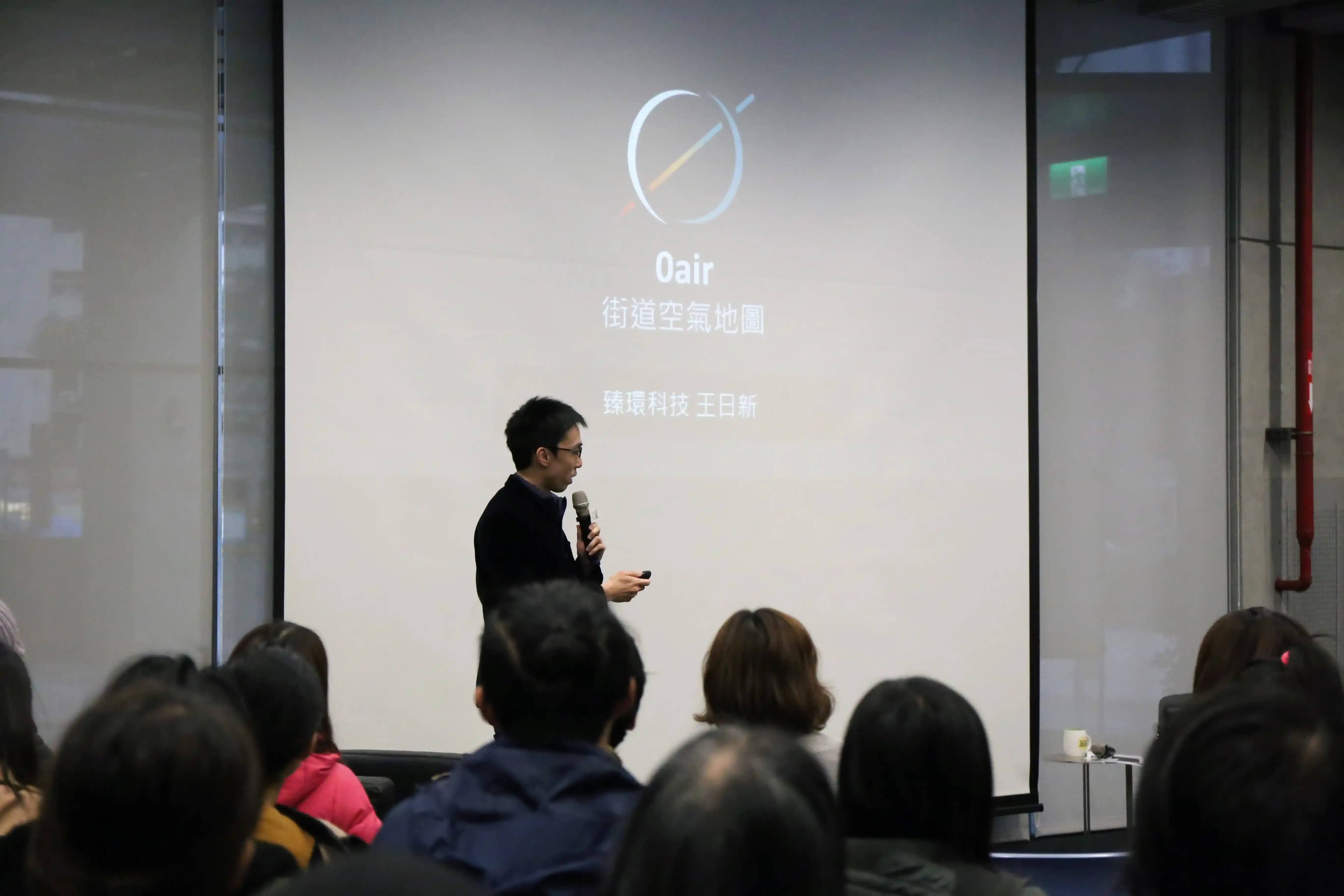
Wang Jih-Hsin, the founder of 0air MAP
The importance of civic consciousness, organization and supervision
In the final part of seminar, director Lin Jia-An said that after filming this documentary, he started thinking about what he can do and how he can support further on this topic. He believed that understanding and cooperation between organizations is really important, as well as considering back in terms of civil movement. And Tseng Hong-wen also believed that these issues have to be discussed, since "there is attention as long as there is discussion", and the attention is essential for NGO workers to have an initiative to the government. In the end, the host of the event Dr. Shih Chia-Liang (施佳良) summarize that the openness, understanding, and translation of information is the basis for citizens to participate in discussions. Through the openness of data as a media, it is an important process for the advancement and transition in Taiwan to connect the general public with the government and to motivate people to understand different aspects of these issues.
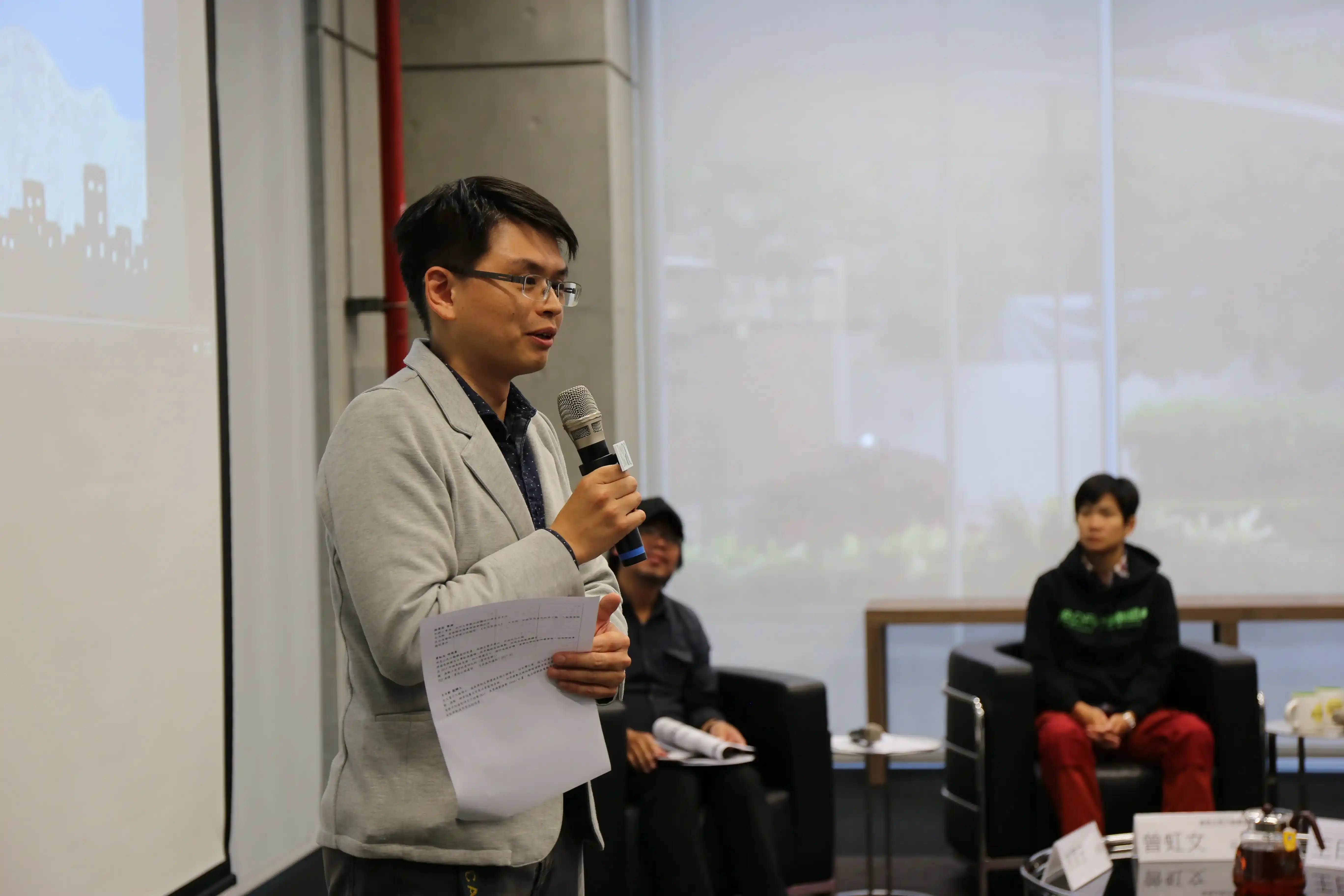
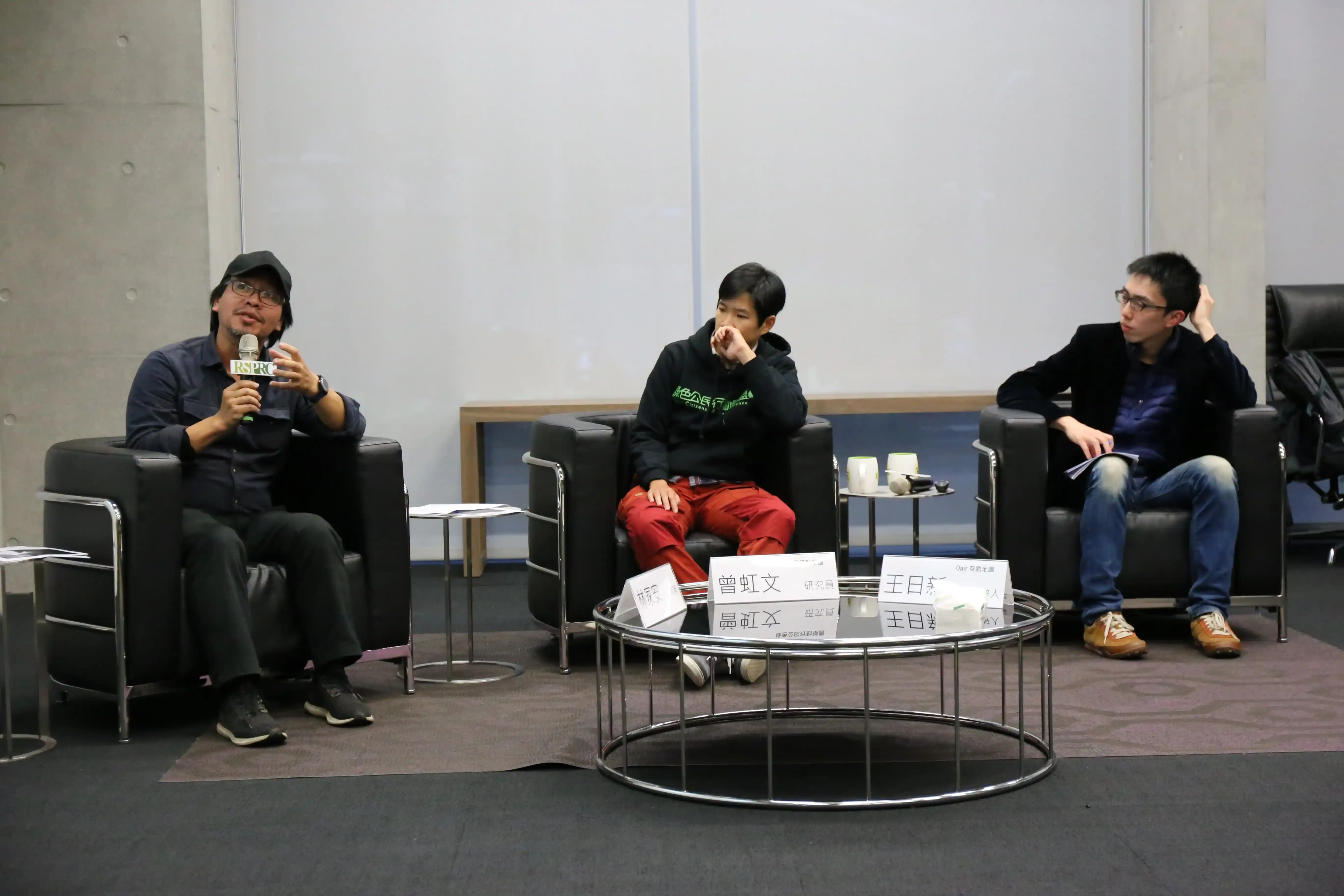
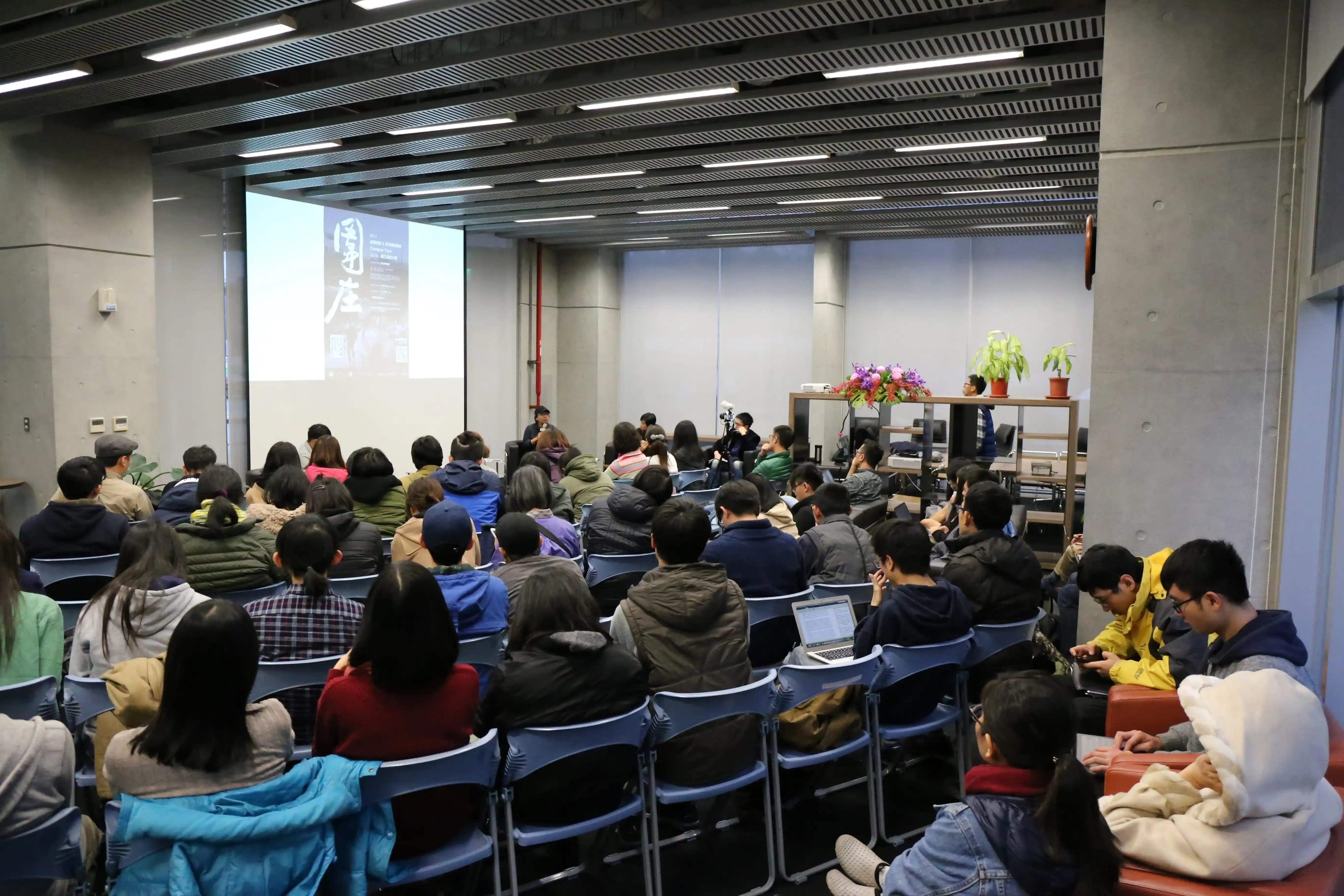
Note:
(1) In 2015, Sheng-Xiang & Band released the album Village Besieged, which discussed much on petrochemical industries and air pollution and in the form of music, the album tried to motivate people to pay more attention on environmental issues. They started a series of campus tours and seminars on air pollution and environmental issues later in 2016 and 2017.

This work is licensed under a Creative Commons Attribution-NonCommercial-NoDerivatives 4.0 International License.
※The aforementioned may not be copied for commercial use without the center's consent, thank you.※
